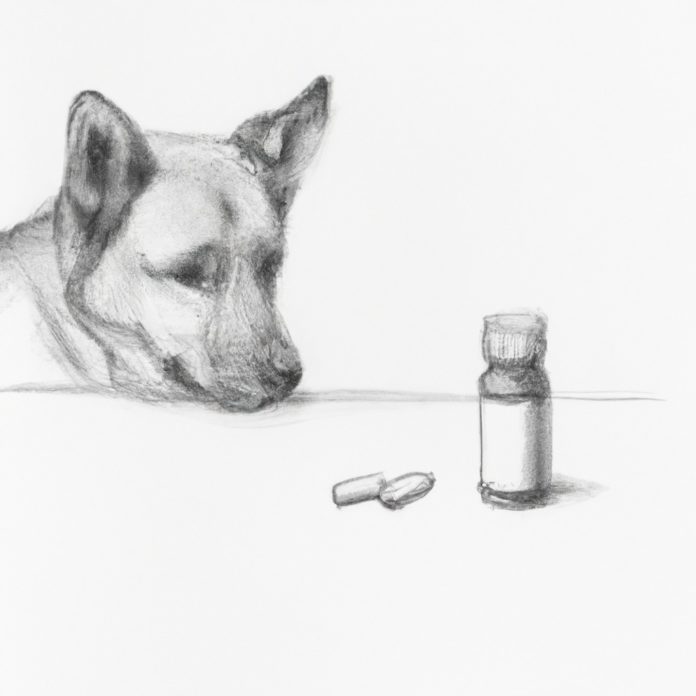Dear VetBabble,
Can I Deworm My Dog While on Corticosteroid Medication?
As a devoted pet owner, I understand how essential it is to keep our furry friends healthy and happy. Today, I want to address a concern that many pet owners may have: is it safe to deworm their dogs while they are taking corticosteroid medication (e.g., medrol 8mg/day)? The answer is yes; it is entirely safe. These two medications do not interact with each other, and administering them concurrently should not pose any issues. However, let’s delve deeper to provide more information on this subject and ensure your canine companion stays in top shape!
Understanding Deworming and its Importance
Why worming our pets is crucial As a responsible pet owner, we must be diligent in our efforts to prevent and treat common parasites such as fleas, ticks, and worms. Each of these pests can cause our pets to experience discomfort and various health issues if left untreated. For more information about fleas, ticks, and worms, and what you need to know, check out Fleas, Ticks & Worms: What You Need To Know. Worm infestations can cause severe problems, such as gastrointestinal discomfort, weight loss, and overall weakness. In some instances, a worm infestation may even lead to more grave health complications. To understand better why worming your pet is so important, you can refer to this informative article: Why Worming Your Pet is So Important. Common signs of worm infestation in dogs To ensure your dog remains healthy, it’s essential to look out for the following signs that may indicate a worm infestation: • Diarrhea or vomiting • Distended stomach • Change in appetite • Lethargy • Dull coat • Visible worms in feces or around the anus If you suspect that your dog has a case of worms, consult your veterinarian for an accurate diagnosis and the necessary treatment.
How Corticosteroids Work in Dogs
Corticosteroids, such as medrol, are prescribed to dogs for various purposes like reducing inflammation, suppressing immune system activity, or treating allergies. These medications can be highly effective for managing specific conditions like arthritis, allergies, or autoimmune diseases. However, an essential thing to keep in mind is that corticosteroids may have side effects, such as increased thirst, hunger, mild digestive issues, or weakening the immune system, making your dog more susceptible to infections. These side effects are usually manageable as long as you follow your veterinarian’s advice on administering the mediation and keep track of your dog’s condition.
Combining Corticosteroids and Deworming: Safety Measures
As mentioned earlier, it is safe to deworm your dog while they are taking corticosteroid medication. The deworming treatment will not interfere with the corticosteroid’s action, and vice versa. However, always consult your veterinarian before administering any medication to ensure you are providing the appropriate dosage and following the correct frequency. Watch out for other conditions While administering corticosteroids and deworming medication is safe, it is essential to keep an eye out for other possible issues that may arise. For example, your dog may develop skin conditions, such as mange, that may require further treatment. For valuable information on identifying mange on your dog, please refer to the link: Does My Dog Have Mange?. Handling allergies in dogs Sometimes, the need for corticosteroid treatment may stem from allergies. In these instances, it’s essential to explore underlying causes and manage them effectively. For dogs with allergies, you may consider using Benadryl as a potential treatment option. For more information about Benadryl safety and usage for dogs, check out this resource: Benadryl Safety and Usage for Dogs. To sum it up, it is safe to deworm your dog while they are on corticosteroid medication like medrol. Nonetheless, always remember to consult your veterinarian before implementing any treatments so that your beloved pet remains healthy, happy, and free of any uncomfortable parasites or conditions.









